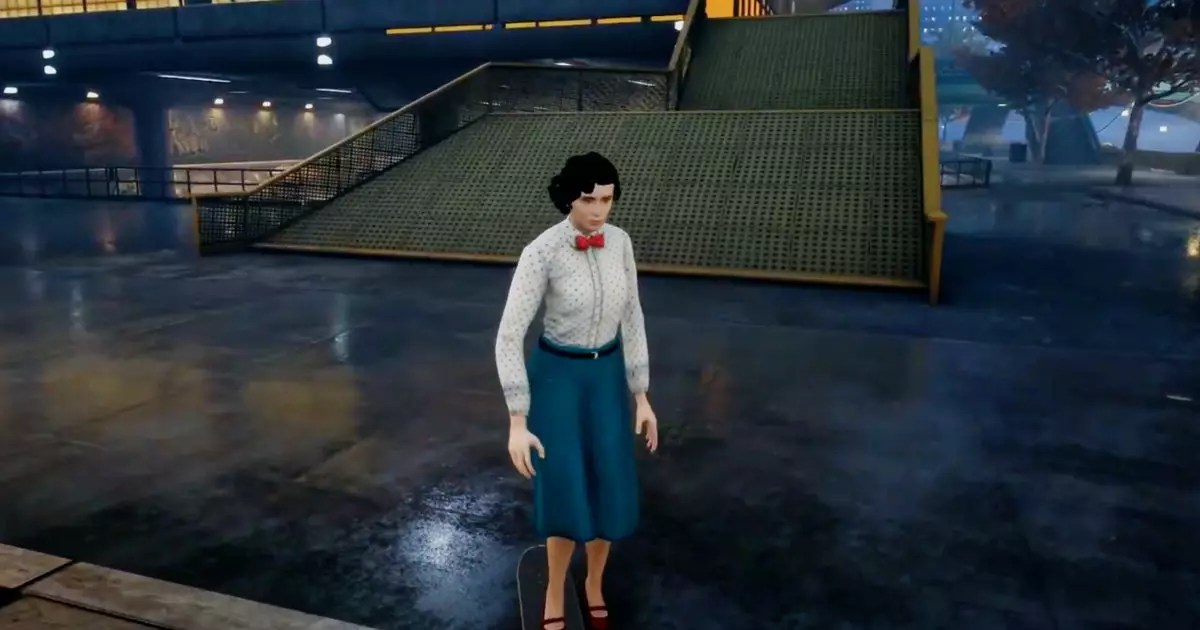The launch of Tony Hawk’s Pro Skater 3+4 has ignited a passion-fueled revival among skateboarding fans and gaming enthusiasts alike. This latest iteration—though technically arriving in early access—serves as a fertile ground for creativity, particularly thanks to the vibrant modding community. Unlike traditional game releases, which often leave players at the mercy of developers’ predefined content, this community has transformed the game into a living canvas, allowing players to customize their experience in unprecedented ways. The sheer variety of character skins, gameplay tweaks, and creative reinterpretations signal a turning point in how games can evolve post-launch, driven by dedicated fans.
What’s particularly striking about this wave of mods is the playful, sometimes surreal, reinterpretation of beloved characters. From iconic figures like Tommy Angelo and Tony Soprano to beloved princesses such as Elsa and Snow White, the list demonstrates a newfound creative freedom that breaks conventional boundaries. Modders are not simply replacing models; they are crafting narratives, blending worlds, and asking fundamental questions about what it means to personalize a gaming universe. This evolution underscores a broader trend in gaming: the democratization of content creation, where players are no longer passive consumers but active architects of their digital landscapes.
The Power of Subversion: From Classic Characters to Unexpected Hybrids
Among the multitude of mods, a particularly eye-catching creation is the Mary Poppins skin. This unconventional choice exemplifies the daring spirit propelling the scene. Mary Poppins, famously known as the whimsical nanny guiding children through fantastical adventures, is now depicted tearing up skateparks with a skateboard, in a narrative that retrofits her into an unexpected role: a rock-star skater battling personal and collective hardships. The backstory given to this mod is both humorous and poignant, weaving a tale of resilience and escape during tough times—a narrative that resonates with the game’s rebellious, counter-cultural ethos.
This particular mod challenges notions of authenticity and tradition. Why should Mary Poppins remain confined to her movie universe? This reinterpretation invites players to see familiar icons in new lights, blurring the lines between childhood nostalgia and adult absurdity. It is a testament to the community’s willingness to inject humor, heart, and a touch of the surreal into a game that is otherwise rooted in technical skill and mastery. Such creativity elevates the modding scene from mere superficial customization to a form of digital storytelling, one that reflects the diverse personalities and whims of the gaming community.
Beyond Skins: Functional and Quality-of-Life Improvements
While character swaps serve as the most visible aspect of the modding scene, the community’s contributions extend far beyond aesthetic changes. Tools like ported mods from previous versions, which introduce features such as custom restarts or free-roam cameras, demonstrate a diligent pursuit of improving usability and player experience. These enhancements transform the game from a straightforward challenge into a playground of experimentation and exploration.
Furthermore, the inclusion of performance-enhancing mods like quick startup options shows a practical understanding of player frustrations. The community’s ability to combine humor, artistry, and functionality makes the modding ecosystem not just a side attraction but a core part of the game’s ongoing appeal. It reshapes the perception of mods from trivial add-ons to essential components that extend the lifespan and depth of the game.
The Cultural Phenomenon of Nostalgia Meets Innovation
What truly sets Tony Hawk’s Pro Skater 3+4 apart in this moment is its ability to tap into the collective nostalgia of gamers while simultaneously pushing boundaries through user-generated content. It’s a volatile cocktail—combining the cherished memories of skateboarding’s golden age with an experimental, almost anarchic, approach to game design. This combination fuels a sense of community ownership over the experience, fostering a culture where the game evolves based on players’ imaginations and passions.
In essence, the game’s modding scene exemplifies how modern gaming is increasingly about collaboration and creative freedom. It challenges developers to consider how they can support such initiatives, ensuring that the community’s voice is integrated into future iterations. Whether it’s Mary Poppins shredding or Chief on a mini-tank, these mods embody the rebellious spirit and inventive flair that define contemporary gaming culture—where the only limit is your imagination.


Leave a Reply